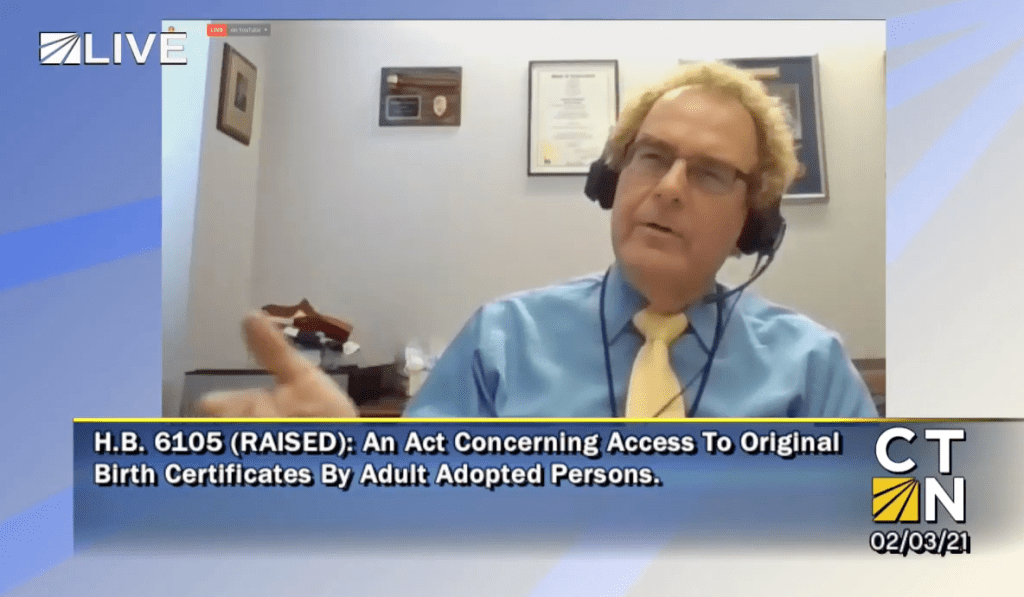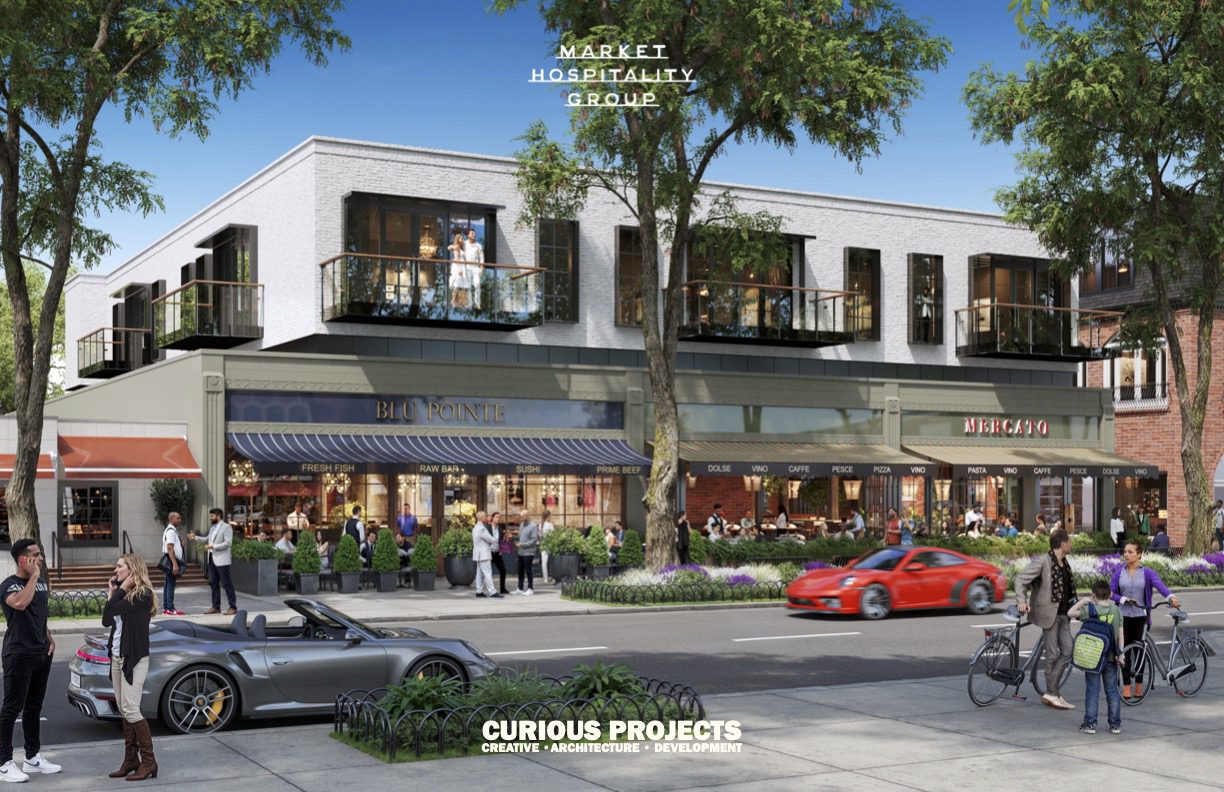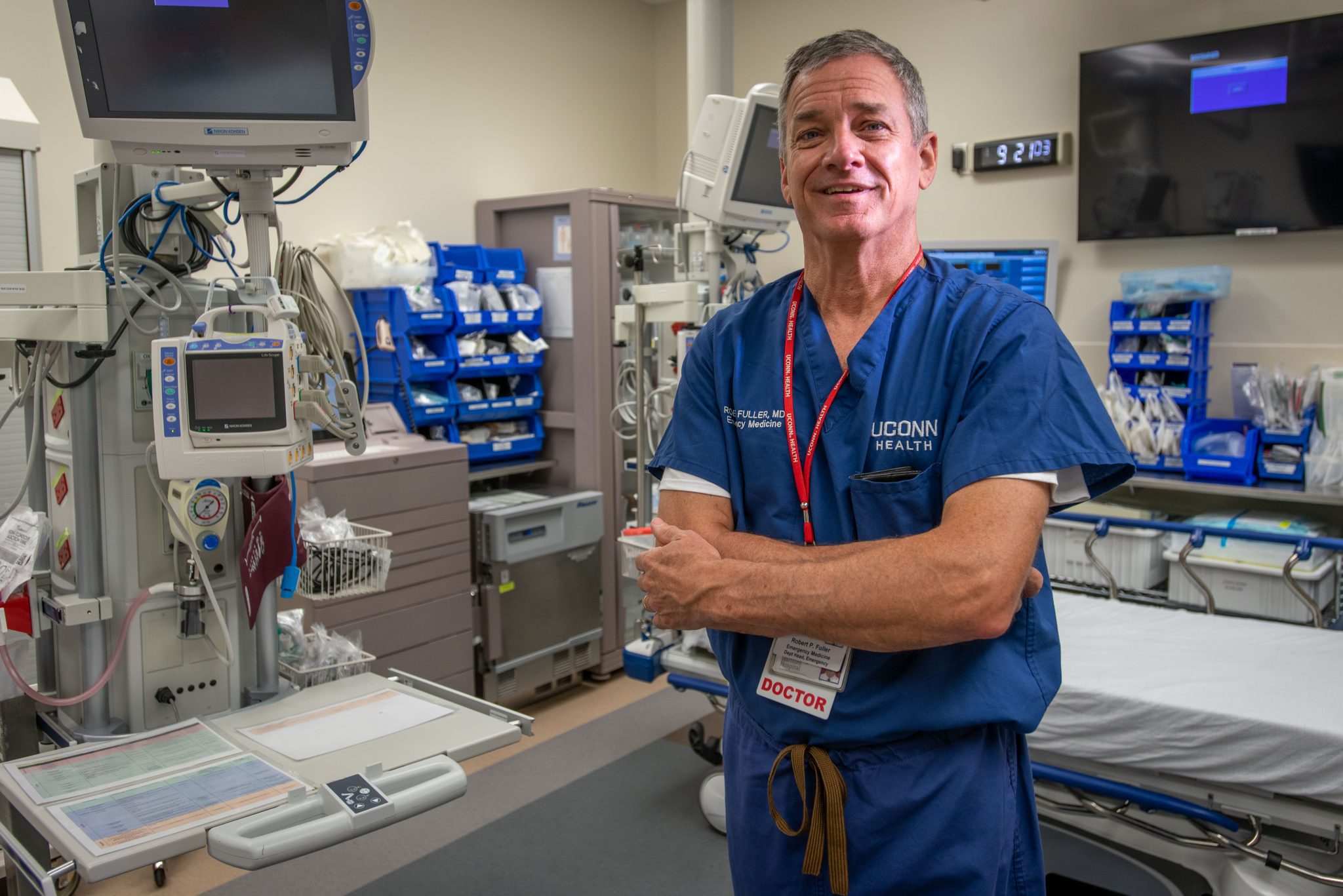Adoptees Seeking Birth Certificates Try Again

Audio By Carbonatix

Rep. Tom Delnicki, R-South Windsor, (Courtesy of CT-N/CTNewsJunkie.com)
Individuals born in Connecticut between 1944 and 1983, whose biological parents are still living, are prohibited from obtaining their original birth certificate.
By Hugh McQuaid, CTNewsJunkie.com
A group of adopted adults renewed their years-long fight for access to their original birth certificates during a Wednesday virtual public hearing of the Planning and Development Committee.
In Connecticut, a narrow slice of people are barred by state law from obtaining their original birth records. They are adopted people born between 1944 and October of 1983 whose biological parents are still living. Their exclusion stems from decades of shifting statutes tied to evolving philosophies on privacy and morality. But the impact is concrete for a group that once numbered around 40,000, according to advocates.
Kathy Flaherty is a Newington resident who told the committee she was testifying on the issue for the fifth time. She said a trip to the doctor’s office illustrates the disadvantage the state has placed on the group by denying them access to their biological family history.
“You get asked questions of whether you have a family history of X, Y, or Z. I have gotten to the point where I scrawl in really big letters across the whole page ‘I don’t know because I’m adopted and please stop asking the question,’” she said. “It’s actually just a reminder every time you go to the doctor of what you don’t know.”
Adopted people born between the affected dates can only obtain an amended birth certificate, which includes the names of their adopted parents.
Committee member Rep. Tom Delnicki, R-South Windsor, said he was also impacted by the law. He said he was adopted shortly after his birth and cannot access his own original birth certificate. Delnicki framed the issue in terms of civil rights.
“It’s like Groundhog Day. Literally. Here we are again. We need to get this done. We need to take it off the books and we need to make the process fair and honest and forthright for each and every person … who do not have that access to a legal document that every other person in the state of Connecticut – except for that tiny group – are entitled to,” Delnicki said.
There has been some movement on the issue during the past decade. In 2014, former Gov. Dannel P. Malloy signed a bill changing the law to open access for adopted people born after 1983. The date was set as a result of a change in the wording of adoption forms in Connecticut and is an attempt to protect the privacy of biological parents who gave their children up for adoption.
In written testimony submitted ahead of Wednesday’s hearing, David Reynolds, associate director for public policy at the Connecticut Catholic Public Affairs Conference, urged lawmakers to keep the statutory cutoff in place.
Reynolds said the change “would violate agreements between Catholic Charities adoption agencies and the agreement made with birth parents that their identity would not be revealed. These birth parents, who have moved on in their lives and may have built new families, deserve to have this serious agreement respected.”
However, during the hearing some speakers questioned whether such agreements were made and whether birth mothers desired the privacy the group was seeking to protect.
Eileen McQuade, a birth mother who gave a child up for adoption decades ago, told the committee she did not want adoption agencies or Catholic Charities speaking for her. She said the happiest day of her life occurred when the daughter she had given up for adoption contacted her some 30 years later.
“Secrecy was imposed on us. It was the way it was done. It wasn’t something we requested,” she said. “We were not in a position to negotiate.”
Karen Caffrey, co-president of Access Connecticut, said she was not aware of any written promise of confidentiality given to birth mothers. More often, birth mothers promised not to interfere with the adopted families, she said.
Regardless of the circumstances decades ago, Caffrey said current state law should reflect the best course of action now.
“What is the right thing to do now? What is the human, civil right now? Maya Angelou has said, she’s a poet, I’m sure you all know, ‘Do the best you can until you know better and then when you know better, do better.’ I think we know better,” Caffrey said.
You can indicate your support or opposition to this bill on CTNewsJunkie.com here.
Republished with permission from CTNewsJunkie.com, all rights reserved.
Like what you see here? Click here to subscribe to We-Ha’s newsletter so you’ll always be in the know about what’s happening in West Hartford! Click the blue button below to become a supporter of We-Ha.com and our efforts to continue producing quality journalism.



